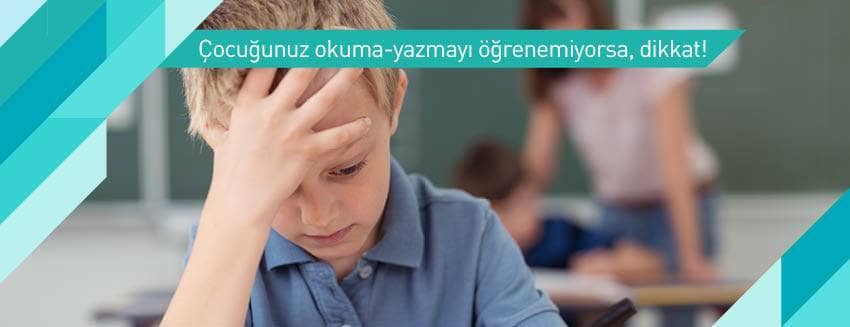
Dyslexia, a neuropsychiatric disorder that is seen as a learning disability in individuals, is often not recognized by families. Stating that an individual's inability to learn reading, writing and numerical operations is a sign of dyslexia, experts warn parents to be careful.
Specialized Psychologist Leyla Arslan Özcanlı from Üsküdar University NPISTANBUL Hospital. Psychologist Leyla Arslan Özcanlı made important evaluations about learning disabilities in individuals.
Child has difficulty in reading, writing and numerical operations
"Dyslexia is a neuropsychiatric disorder. If an individual cannot read, write or do math at the expected level, we suspect a learning disability." Psychologist Leyla Arslan Özcanlı said, "However, these individuals do not have a mental problem at the same time. When diagnosing specific learning disabilities, an intelligence test is definitely performed. Although they are intelligent, they have more difficulty in understanding reading, reading and writing what they read, as well as numerical operations compared to normal children. In fact, we can take this in 3 sub-dimensions. Not learning to read, not learning to write, not learning numerical operations..."
Confusing letters in reading and writing
Arslan said, "When it comes to reading mistakes, the letters "b" - "d" are usually mixed up, letters are skipped, "and" can be read as "ev", "m" can be read as "n", "e"-"a" sounds are mixed up. Since they read like this, they can also write like this. These children face such a problem when they start school."
"In fact, it is easy for us to detect this situation in the preschool age, that is, after the age of 3; but most of the time, families do not realize this very much. In fact, the situation becomes clear in the second semester of school. When reading is like this, the same mistakes occur in writing. In mathematics, these children cannot learn the multiplication tables. In the earlier stages of development, in kindergarten, we see that these children confuse the left and right directions, they cannot learn left and right, they cannot learn some concepts, they cannot perform some fine motor movements.
They cannot walk in balance, they are late in using forks and spoons
For example, these children are very late in using forks and spoons. They cannot walk on balance, play hopscotch or tie knots. These are tasks that should be done until the age of 3. They cannot do these, so even if they try, they have difficulties in this area. If not recognized and not taught, this difficulty can extend to reading and writing, holding a pencil or pen. Here, we come across many children who we follow as clinical practice, who have reached the 3rd and 4th grade and who hate reading and writing, but who have good intelligence."
Children whose problems are not recognized are forced to drop out of school
"When we look at these, we see the following on average: children's perception of space is actually impaired. When we say space perception, for example, they have reverse perception," Arslan said,
"When we do a test; let's say we give a shape. When we say 'Write-draw', it turns the shape upside down. It can also write the text upside down, just like its image. He also rotates the shapes we give from top to bottom. Not everyone has such a situation, but this is actually what makes specific learning disabilities difficult. If the parents do not realize this condition of the child, they have to think in detail about why the child is not studying. Indeed, this problem is so big and when it is not understood, it causes so many different problems that children have to drop out of school and do not like school, even though they can actually be successful. According to studies conducted both in Turkey and around the world, one third of such children drop out of school because they don't like school. One third of them are completely treated, they find the right person and technique; the others drop out at high school level and do not continue to university even though they can do it."
